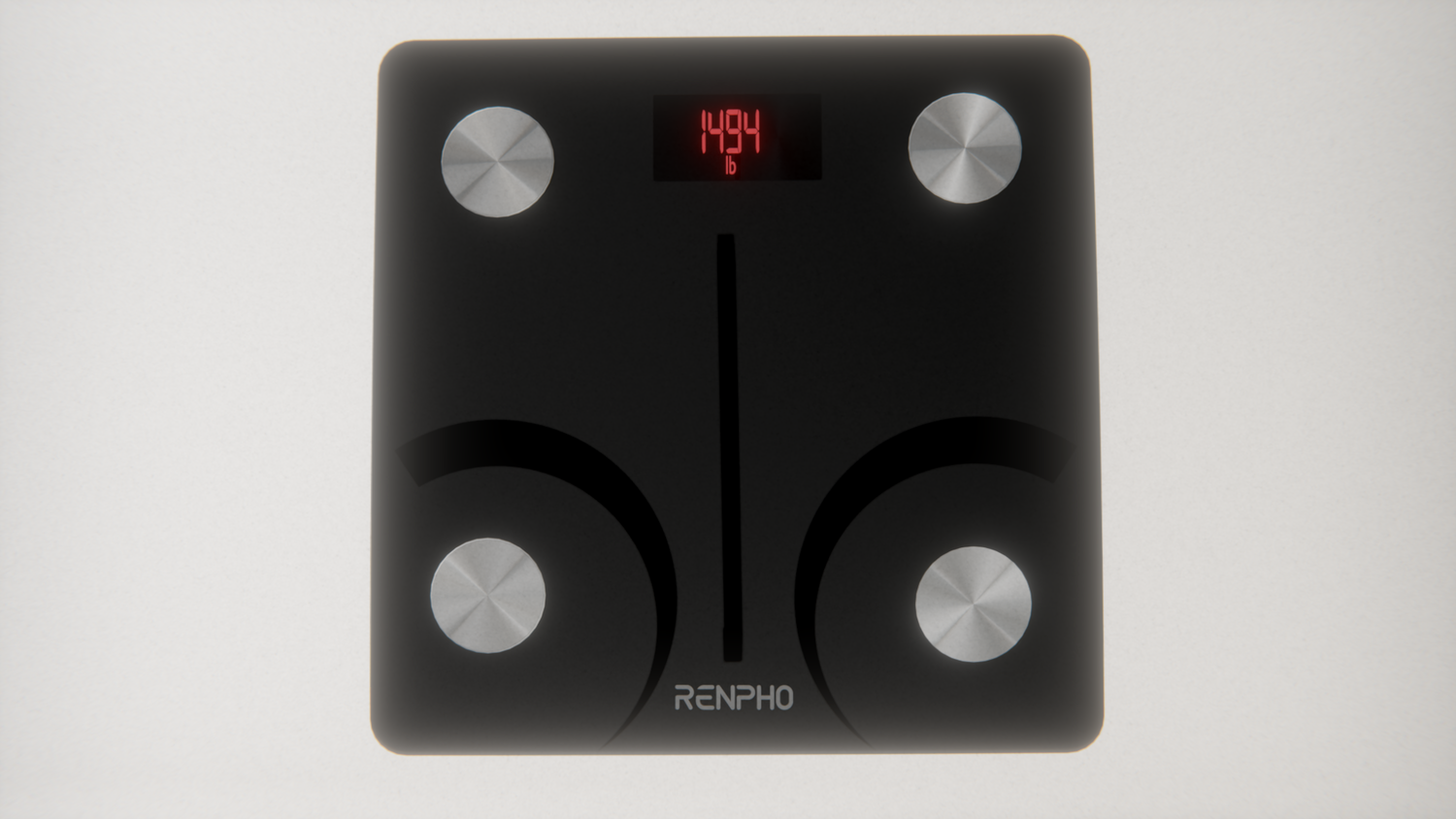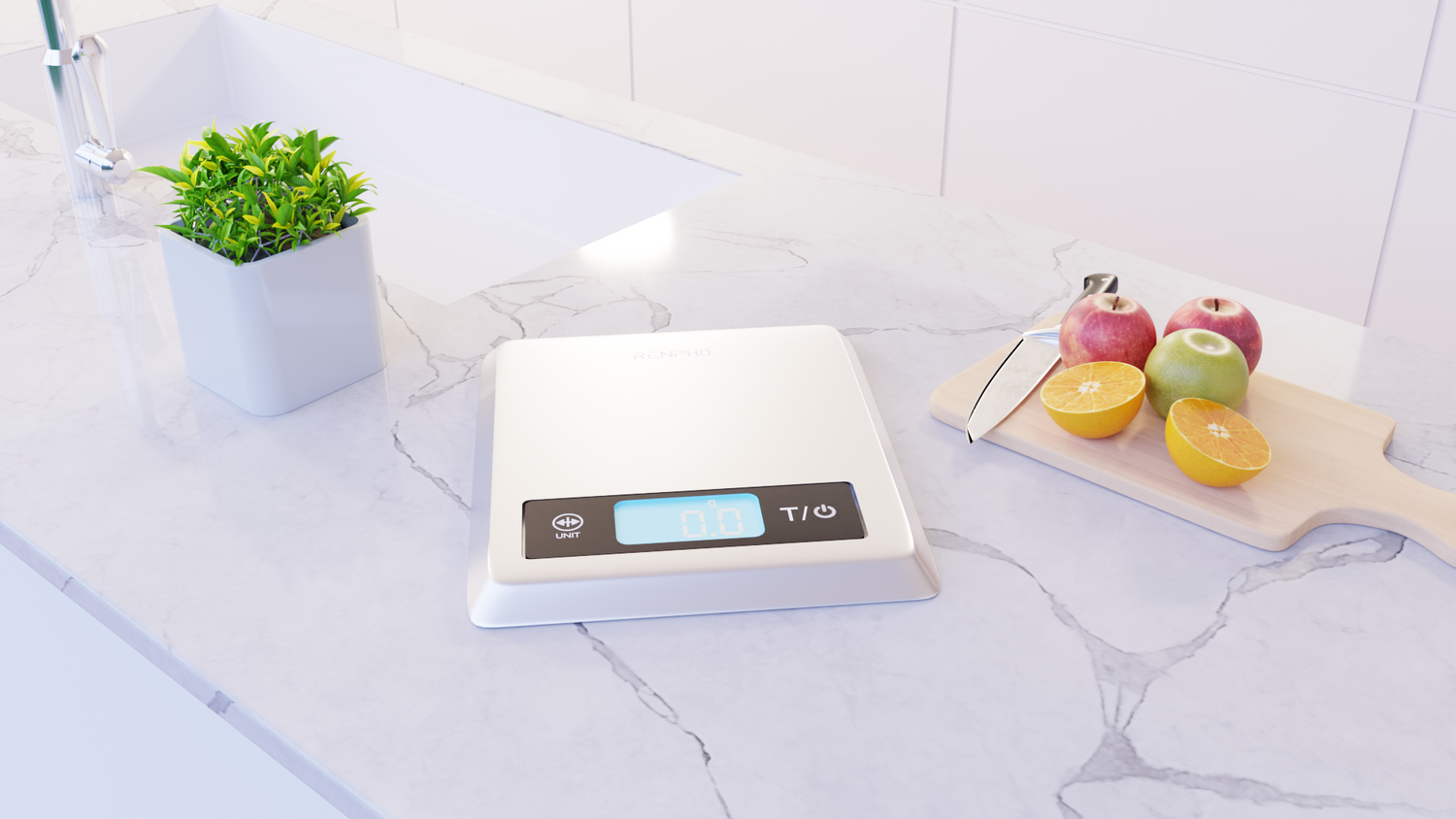Article Revision Made Last June 4, 2025
In our pursuit of self-improvement and a deeper understanding of our bodies, many turn to digital scales as a trusted tool for weight measurement. Yet, despite their widespread use, these scales often leave us puzzled by their inaccurate readings. It's not uncommon to step on a digital scale one day, see a certain number, and then witness a different reading the next day, even without noticeable changes in routines.
The truth is that digital scales are influenced by a multitude of hidden factors that can result in significant fluctuations. While assumed to be infallible, it's essential to recognize the complexities that impact their accuracy.
Let's uncover the reasons behind these fluctuations and discover the invisible variables that can skew measurements, leaving us scratching our heads.
By unraveling the mysteries that surround digital scale fluctuations, we aim to equip you with valuable insights and practical knowledge. Whether you rely on these scales for weight management or simply seek a clearer understanding of their limitations, this exploration will shed light on the hidden factors that affect digital scale readings.
Why Does Your Digital Scale Fluctuate?

Digital scales have become an essential tool for individuals striving to track their weight accurately and maintain a healthy lifestyle. However, it can be frustrating when these scales display inaccurate readings, making it difficult to understand the true changes in one's weight. Understanding the reasons behind these fluctuations is crucial for obtaining reliable measurements and gaining insight into overall progress.
With that said, let’s explore two key aspects: the common reasons why digital scales themselves fluctuate and the common factors that can cause your weight to fluctuate. By shedding light on these factors, we aim to help you make more informed decisions about your health and weight management goals.
5 Common Reasons Why Digital Scales Fluctuate
Digital scales can fluctuate due to various factors affecting their accuracy. One significant aspect to consider is the environment in which the scale is placed.
Understanding how surrounding conditions influence scale readings provides a clearer picture of weight measurements, aiding informed decisions about health goals.
1. Calibration Issues
Calibration is a critical factor that can significantly influence the accuracy of smart scales. Over time, they may lose their calibration, especially if they are frequently moved or experience temperature changes. When a scale is not properly calibrated, it can result in inconsistent readings that leave users puzzled.
To combat this issue, regular calibration is essential to ensure your digital scale provides accurate measurements. This might involve placing a known weight on the scale or simply following a built-in recalibration routine according to your manufacturer's instructions. Calibration ensures that the scale’s sensors are accurately translating the force applied by weight into a digital display, thereby providing more consistent results.
For users seeking precision, investing in a scale with auto-calibration features can be beneficial, as it ensures the scale adjusts itself after each use, minimizing the room for error due to calibration discrepancies.
2. Uneven Surface
One common reason for fluctuating readings on a digital scale is an uneven surface. If the scale is placed on a surface that is not flat or stable, this can lead to fluctuations in readings. Uneven tilts or slight movements can impact the distribution of weight across the scale, causing it to misread your actual weight. It's crucial to place the scale on a hard, flat surface to ensure accuracy. Carpets, rugs, and uneven flooring can all contribute to inaccurate scale readings. To avoid this, try using the scale on a solid floor such as tile or hardwood. Regularly checking the stability of the surface and repositioning the scale if necessary can help in obtaining more reliable measurements. By ensuring the scale rests on an even foundation, you minimize one of the prominent sources of measurement fluctuations.
3. Unbalanced Load
An unbalanced load on the scale can also contribute to fluctuations in weight readings. When standing on the scale, it is essential to distribute your weight evenly across the platform. If your weight is concentrated on one side or if you are leaning to one side, the sensors may provide inaccurate measurements.
It is especially important to maintain proper posture and balance while weighing yourself. Even a subtle shift in position, such as leaning forward or backward, can influence the reading. To avoid this, make a conscious effort to stand upright with your feet positioned evenly apart and centered on the scale.
Additionally, consider the placement of the scale itself. If the scale is positioned in a location where it might shift or tilt slightly due to surrounding objects or movement, this can also lead to unbalanced readings. Ensuring your scale is both on a stable surface and used with balanced footing is key to achieving accurate and consistent weight measurements.
4. Moisture Damage
Moisture can significantly impact the functionality and accuracy of a digital scale. Exposure to water or high humidity levels can interfere with the internal electronic components of the scale, leading to inconsistent or fluctuating readings. Digital scales are particularly sensitive to moisture, as it can affect the circuitry and the sensors that determine weight measurements.
To prevent moisture damage:
-
Always keep your scale in a dry, stable environment.
-
Avoid placing the scale in areas like bathrooms, where humidity is consistently high.
-
Clean the scale with a dry or slightly damp cloth, ensuring no water seeps into the electronic components.
5. Residue Buildup
Over time, dust, dirt, and other residues can accumulate on the surface and sensors of your smart scale, potentially leading to fluctuating readings. This buildup may interfere with the scale's ability to accurately register weight by causing obstructions to the sensors or uneven weight distribution.
To minimize residue issues:
-
Regularly clean the scale with a soft, damp cloth and ensure that the surface is free from dust and debris.
-
Avoid using harsh chemicals or abrasive materials that might damage the sensors or the scale's surface.
-
Check the scale's underside and footings, as residue can also interfere with stability on the floor.
Keeping your digital scale clean and free from debris ensures that it can operate accurately and provide accurate readings.
Addressing these common issues minimizes fluctuations in smart scales, ensuring more reliable weight measurements. Being mindful of these factors, along with calibrating the scale regularly and placing it on a stable surface, enhances the accuracy and consistency of your digital scale readings.
5 Common Reasons Why Your Weight Fluctuates
Managing body weight is a topic that often piques curiosity and concern. However, it's important to recognize that weight is not a static number, but a dynamic measurement that can vary over time. Understanding the reasons for these fluctuations can provide valuable insights into our bodies and help us maintain a healthy perspective on weight management.
By examining these factors, we aim to help you better understand your body's natural variations, empowering you to make informed decisions about your health and well-being.
-
Water Retention: Changes in your body's water balance can cause weight fluctuations. Factors such as high sodium intake, hormonal fluctuations, certain medications, and dehydration can all lead to water retention, resulting in temporary weight gain.
-
Food Intake: The amount and type of food you consume can impact your weight from day to day. Eating a large meal, consuming high-sodium or high-carbohydrate foods, or indulging in treats can cause temporary weight fluctuations due to the digestion process and water retention.
-
Digestive System: Your digestive system plays a role in weight fluctuations. Factors like the speed of digestion, the presence of gas or waste in the intestines, and variations in bowel movements can affect the number on the scale.
-
Exercise and Muscle Gain: Engaging in physical activity, particularly strength training, can lead to weight fluctuations. As you build muscle, it is denser than fat, so you may experience weight gain due to increased muscle mass even if your overall body composition is improving.
-
Hormonal Changes: Hormonal fluctuations, such as those that occur during menstruation or menopause, can cause temporary weight fluctuations. These hormonal changes can impact water retention, appetite, and metabolism, leading to shifts in weight.
It's important to remember that weight fluctuations are normal and can occur daily or weekly. It's more valuable to focus on long-term trends rather than getting caught up in day-to-day changes. If you have concerns about your weight, it's always a good idea to consult with a healthcare professional for personalized advice and guidance.
Why Look Beyond Daily Fluctuations on Your Digital Scale?

Focusing solely on daily weight fluctuations can lead to frustration and dissatisfaction. It's important to look at overarching trends over weeks and months to truly gauge progress. By considering long-term changes rather than daily fluctuations, you can better track your weight loss or fitness journey. Moreover, it's crucial to recognize non-scale victories, such as improvements in strength, endurance, and clothing fit, as they reflect progress that may not be reflected on the scale.
Takeaway
Digital scales are widely used for measuring weight, but their readings often fluctuate inconsistently, leaving us puzzled. Fluctuations can be caused by calibration issues, surface unevenness, low battery power, environmental factors, and electronic interference. Regular calibration, placing the scale on a stable surface, ensuring sufficient battery power, and minimizing electronic interference can improve accuracy. Weight fluctuations can be attributed to water retention, food intake, the digestive system, exercise and muscle gain, and hormonal changes.
It's important to focus on long-term trends rather than day-to-day changes and acknowledge non-scale victories like improvements in strength and clothing fit. By understanding these factors, we can make informed decisions about health and weight management.
So if you're looking for a smart scale to help you start or continue your wellness journey, check out our collection of smart scales.
Source:
RENPHO Health Tips
-

How to Test Your Bathroom Scale for Accuracy
January 29, 2024
Read more >
-

Why You Need a Smart Body Scale in 2024
January 25, 2024
Read more >
-

Why You Should Buy an Easy Setup Scale ASAP
January 22, 2024
Read more >
-

How Long Do Bathroom Scales Last and When to Replace Them?
January 18, 2024
Read more >
-

Beginner's Guide on How to Use Digital Scales for Food
January 16, 2024
Read more >




































